What Should I Do If Manufacturing Defects Caused My New Jersey Accident?

What Should I Do If Manufacturing Defects Caused My New Jersey Accident?
If a manufacturing defect caused your New Jersey personal injury accident, there are certain steps you should take to ensure that you get the compensation you deserve.
The first step is to document everything about the incident. This includes photographs of any visible damage or injuries, medical records from doctors’ visits, and statements from witnesses who may have seen what happened. It’s also important to save any emails sent between yourself and any other parties involved in the accident. All of this will help create an accurate timeline of events and demonstrate that a manufacturing defect was indeed responsible for your accident.
The next step is to contact a qualified lawyer with experience in product liability cases, especially those involving manufacturing defects. An experienced lawyer can help you understand your legal rights, evaluate your case, and build a strong argument in court.
If you decide to pursue a lawsuit against the manufacturer of the product that caused your personal injury accident, you’ll need to prove three key elements: negligence on the part of the manufacturer, causation (which means that the defect directly caused your injury), and damages (the physical and emotional losses associated with your injury). Your lawyer can help you compile all the necessary evidence to establish these three elements.
Finally, it’s important to note that any settlement or award resulting from a successful manufacturing defect claim is likely to be lower than in other types of personal injury cases due to New Jersey’s contributory negligence law. This law states that if you were even partially to blame for the accident, then any damages awarded may be reduced.
Therefore, it’s important to work with an experienced lawyer who can help you prove that your injury was caused by a manufacturing defect and not due to any negligence on your part.
By following these steps, you can ensure that you get the compensation you deserve following a New Jersey personal injury accident caused by a manufacturing defect. If you have any questions or need help finding an attorney, don’t hesitate to reach out for assistance.
How Does New Jersey Define Manufacturing Defects?
According to New Jersey law, a manufacturing defect is a deficiency or flaw in the design, materials, or craftsmanship employed in producing an object that causes the object to deviate from its intended use. Manufacturing defects are typically linked to negligence on behalf of the manufacturer and may result in property damage or personal injury.
For example, if a vehicle was made with faulty brakes due to improper installation by the manufacturer, it would be considered a manufacturing defect.
To prove that there was indeed a manufacturing defect present in a product, it must be proven that the product did not perform as safely as an ordinary consumer would expect when used for its intended purpose.
Additionally, it must also be proven that the defect existed at the time of sale and that the defect was not caused by changes made by the consumer. For a manufacturing defect to be considered valid, it must have been present from the time of manufacture up until the time of purchase.
Manufacturing defects can be extremely dangerous as they put users at risk due to negligence on behalf of the manufacturer. If you believe that a product you purchased is defective due to a manufacturing error, it is important to speak with an experienced NJ attorney about your situation to determine if you may be entitled to compensation for damages or injuries sustained because of the defect.
By understanding New Jersey’s definition of manufacturing defects, consumers are better able to protect themselves against any potential harm posed by defective products. Furthermore, manufacturers are also held to a higher standard of quality control, reducing the likelihood of defective products reaching consumers.
Ultimately, manufacturers and consumers alike need to be aware of this definition to ensure the safety of their products and uphold the standards set forth by New Jersey law.
Liability For Product Injuries
In New Jersey, the law assigns liability in product injury cases depending on whether a product is “unreasonably dangerous” or not. Unreasonably dangerous products are those that contain a defect or flaw, which makes them unsafe for intended use. All manufacturers, designers, distributors, and sellers of unreasonably dangerous products can be held liable for resulting injuries.
The legal theory of strict liability applies when a person has been injured because of using an unreasonably dangerous product. This means that the plaintiff does not have to prove negligence to receive compensation. Instead, they must show that they were using the product as it was intended, and that the injury was caused by an inherent defect in the design or manufacture of the product.
The plaintiff also must show that they were unaware of the product’s defect or danger prior to using it. This is why manufacturers are required to provide adequate warnings and instructions about potential hazards related to their products; if these warnings are found to be inadequate, the manufacturer can still be held liable for resulting injuries.
If a manufacturer is found liable for an injury caused by a defective product, the law allows for three types of compensation: compensatory damages (to cover costs associated with medical bills, lost wages, and pain and suffering); punitive damages (to punish defendants for particularly egregious behavior) and/or injunctive relief (an order from a court ordering the defendant to cease engaging in certain activities). In some cases, a defendant may also be required to pay for the plaintiff’s attorney fees.
In New Jersey, liability in product injury cases is complex and there are many factors to consider. If you have been injured because of using an unreasonably dangerous product, it is important to speak with an experienced personal injury lawyer who can help determine whether you have a case and what type of compensation you may be entitled to.
Who Can Be Held Responsible for My Injury?
In a New Jersey manufacturing defect case, there are generally four different parties that could be held liable: the manufacturer, designer, supplier, and/or installer.
The manufacturer is responsible for the design and production of an item and can be found liable if it is deemed, they did not follow industry standards or meet reasonable customer expectations when producing a product. The designer may also bear responsibility if they designed a flawed product that caused the injury.
The supplier of parts used in the manufacturing process can also be to blame if those parts are defective or were not properly inspected before use. Finally, any installer of a product may be held accountable for failing to install the device correctly or without proper safety precautions.
With each party comes its own set of liabilities, making it important to investigate the facts and hold each party fully accountable for their part in any manufacturing defect case. Additionally, the presence of multiple parties can complicate matters further, often taking expert legal assistance to identify which parties are liable and to what degree they should be held responsible.
If you believe that you have suffered harm due to a defective product or service in New Jersey, it is important to speak with an experienced attorney who can help determine the parties responsible and how best to pursue your claim.
An attorney will assess the circumstances of your case and guide you as you navigate through the legal process. With their help, you may be able to obtain compensation for any losses caused by another’s negligence.
Elements Of a Manufacturing Defect Claim
A New Jersey manufacturing defect claim involves a plaintiff’s assertion that a product was dangerously defective when it left the hands of its manufacturer. To establish such a claim, an injured party must prove three elements: (1) the product is faulty; (2) the fault lies with the manufacturer; and (3) the fault caused injury or damages to the claimant.
The first element requires proof that the product contained some kind of flaw or defect. The defect could have occurred due to poor design, inadequate assembly, or substandard components used in making the product. Alternatively, if a warning label or instruction manual was insufficiently clear, this could also constitute evidence of a defect.
The second prong of a New Jersey manufacturing defect claim requires proof that the fault was a result of an action or omission by the manufacturer and that other parties involved in producing the product were not responsible. This could include evidence that the manufacturer’s safety protocols, or quality control measures were inadequate.
The third element of such a claim requires evidence that the flaw caused injury or damages to the claimant. The injuries must be directly connected to the defect; in some cases, this means proving that no other factors contributed to them.
Proving causation may require expert testimony from engineers, medical professionals, or other relevant experts who can explain how and why a particular product malfunctioned as it did.
Pursuing a successful New Jersey manufacturing defect claim is often complicated, as it requires extensive knowledge of the product’s design and manufacture. A skilled attorney can help an injured plaintiff navigate these elements and build a strong case for recovery.
How Long Do I Have to Sue for A Product Defect In New Jersey?
In New Jersey, consumers have 2 years from the date of purchase to file a lawsuit for product defects. This is known as the statute of limitations and applies to both breach of warranty claims and strict liability claims.
A breach of warranty claim occurs when the product does not match its contract or promise either explicitly or implicitly given by the manufacturer or seller and is commonly used when there is an issue with design, materials, or workmanship that causes injury to property or a person.
On the other hand, strict liability applies when any defect in a product – regardless of fault – results in injury to property or person. In this case, it doesn’t matter if the seller was aware of the defect before selling; they are still responsible for any harm the product causes.
The 2-year statute of limitations begins on the date the cause of action accrued, which is when the injury happened or when it should have been discovered. Generally, this is when the consumer used the product and became injured or realized that there was a defect in its design or materials. If a lawsuit isn’t filed within 2 years, then any claim may be barred by law and not pursued.
It’s important to note that there are exceptions to this rule: if an individual is under 18 at the time of purchase, they may still bring suit after they turn 18 but only up until their 20th birthday; minors cannot sue beyond that age. Furthermore, legal proceedings against the government or public entities must typically be filed within 90 days of when the claim arose.
It’s also important to know that a seller may not know that a product is defective until after it has been sold and used; in this case, the statute of limitations for filing a suit can be extended. If a consumer suspects a defect in their purchase, they should contact the manufacturer immediately and document any conflicts or discrepancies that arise soon after its use. Doing so will increase their chances of successfully pursuing an action against them if necessary.
Ultimately, consumers should be aware of their rights regarding product defects and act on them swiftly as time-sensitive claims can become invalidated quickly in New Jersey. Filing a lawsuit within 2 years of the injury or discovery is essential to seek justice for any harm done by a defective product.
Related Blogs
No Fee Unless
GGL Wins
We've got you covered.
We are available 24/7/365
One of our advisers will contact you.

OFFICIAL PARTNER OF RUTGERS ATHLETICS



Recent GGL Wins
Auto Accident
Mediation award Plaintiff was injured in an intersection motor vehicle collision resulting in neck and lower back fusion surgeries.
$2 Million
Verdict
Workers Compensation
25-year-old laborer died in an industrial accident while working.
$1.15 Million
Verdict
Construction Accident
Roofer fell off roof causing head trauma resulting in a head injury. Plaintiff was not given fall restraint protection equipment by contractor.







